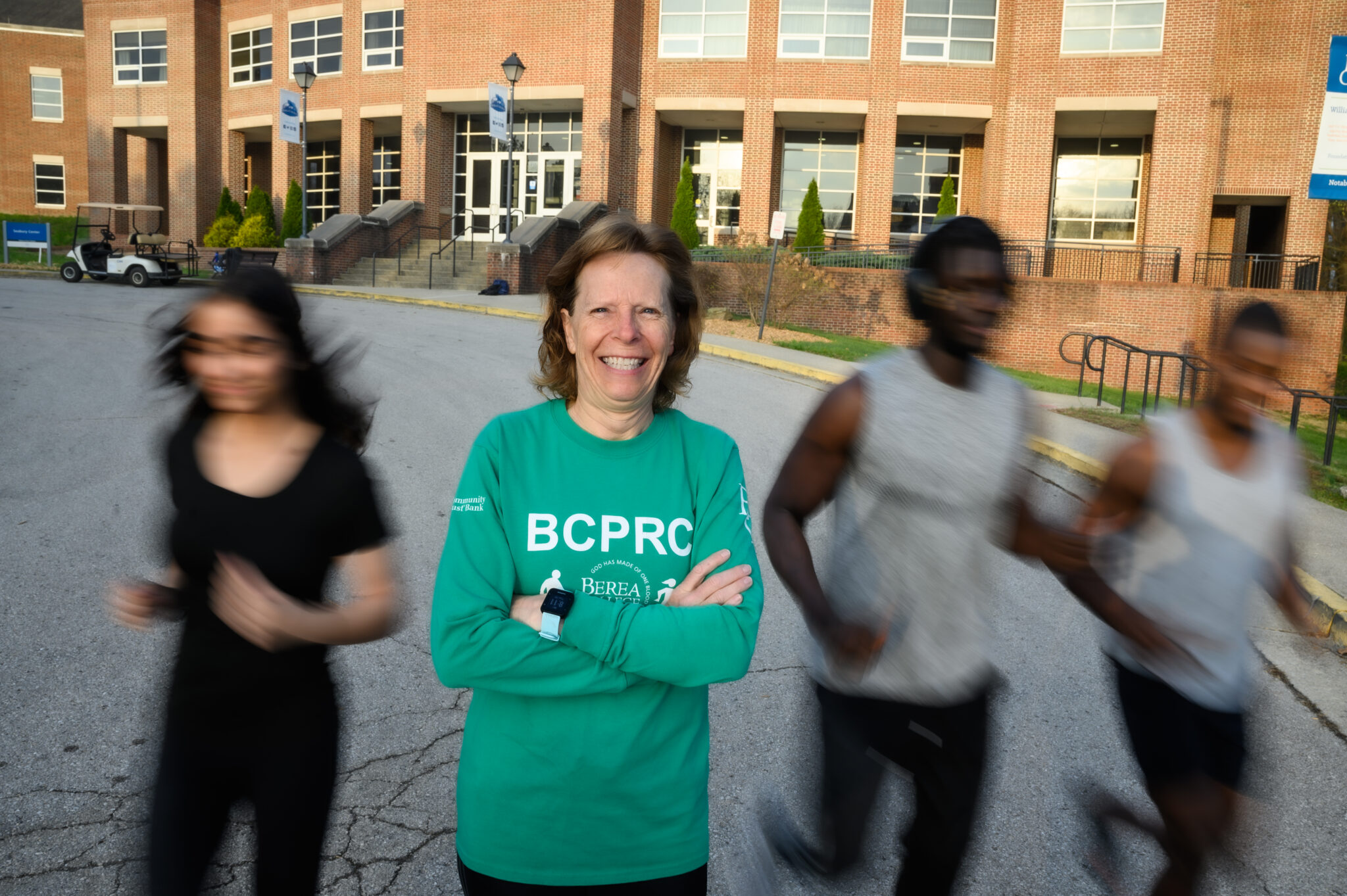Sometimes the smallest items can have the biggest impact. For José Ramos-Macias ’23, something as small as a business card changed the course of his college career. Given to him in a developmental math course his first year, the simple white cardstock says, “We chose you!” Ramos-Macias, who has carried this card in his wallet for four years, will tell you that it’s not necessarily the card itself, but the realization that he was capable and his place on this campus was purposeful that had such a lasting impact.

“They gave us this (card) and told us that it wasn’t a mistake that we made it into Berea College,” Ramos-Macias reflected. “And that the College did choose us. So, I carry this around with me because it’s a really nice sentiment that makes you remember that you’re good at something and that you made it here.”
For decades, Berea College has offered developmental math classes to about 20 percent of the student population whose math test scores and their score on Berea’s placement test signified they needed extra attention before heading into a typical college- level math course. Often students’ weakness in a particular subject is directly related to the poor quality of education they received in schools in low-income, high-risk areas from which Berea specifically pulls its students. Unfortunately, but not unexpectedly, since the COVID-19 pandemic, that number of incoming students who needed these courses increased significantly.
“It’s been a challenge to serve almost twice as many students,” said Teri Thesing, director of developmental mathematics. “The great thing is that though students have come in at a lower level than in the past, they have worked so hard to get caught up. I can’t say enough how proud I am and how hard they have worked. Most of them have shown up outside of office hours for help. They want to learn, and they know it is important.”
While courses like Math 010, 011 and 012 are not uncommon at other colleges and universities, the one-to-one support and encouragement Berea’s professors provide their students is exemplary. Students come in with varying degrees of math anxiety and deep-rooted mindsets that they hate math and are incapable of succeeding in the subject, Thesing said.
“Math anxiety is real,” she said, “and I tell students, ‘Let’s talk about that.’ It’s about a growth mindset versus a fixed mindset, fighting imposter syndrome and making sure they understand we believe they can be successful here. We know it is challenging, but we are here to support [them] every step of the way.”
They gave us this card and told us that it wasn’t a mistake that we made it into Berea College. And that the College did choose us. So, I carry this around with me because it’s a really nice sentiment that makes you remember that you’re good at something and that you made it here.
José Ramos-Macias ‘23
For that student who says, “No one took the time to explain math to me before,” Thesing and the other three instructors who teach developmental courses are careful to explain each step, through each phase—putting in the extra hours to ensure every student has the chance to be successful and complete their courses.
“To help them see they can do math when their mindset is different, to get to see that process and getting them to believe in themselves—this is an exciting place to be,” Thesing said of her work. “It’s exciting to work with them and to get to be a part of that transformation.”
And that transformative mindset doesn’t stop when a student completes Math 012. The realization that they are capable of conquering something they formerly believed they could not carries over into all aspects of their college career, Thesing said.
“One thing we try to work on so much is helping them believe in themselves,” she said. “Once that light goes on and they realize they can do this, it carries over beyond our courses.”
Thesing recalled a student she had this past fall semester who came to her after the first day of class in tears because she was so stressed. On day two, she cried more, and Thesing said, ‘Let’s talk about it,’ and helped her find ways to manage her stress and fears, including guidance to reach out to Counseling Services for assistance.
“Then three weeks later I got an email that said, ‘I’m doing so much better. I haven’t cried in days. When I get to a problem I don’t know how to do, I don’t panic,’” Thesing explained. “That was my favorite part. That was such a sign of growth because she was trusting her ability to work through it.”
The teaching assistants (TA) for the developmental classes are also a huge part of the built-in support students receive. TAs, often former developmental math students, offer peer-led assistance and encouragement and lead math labs in the evenings.
Thinking back to the card each student receives at the beginning of Math 012, Thesing said they want to remind students they were chosen for a reason.
“We tell them, ‘You have to realize there are hundreds of students that applied, and Admissions looked at you and chose you over all other students,” she said. “That’s a powerful message for them to hear. We chose you because we believe in you and will always believe in you.”


